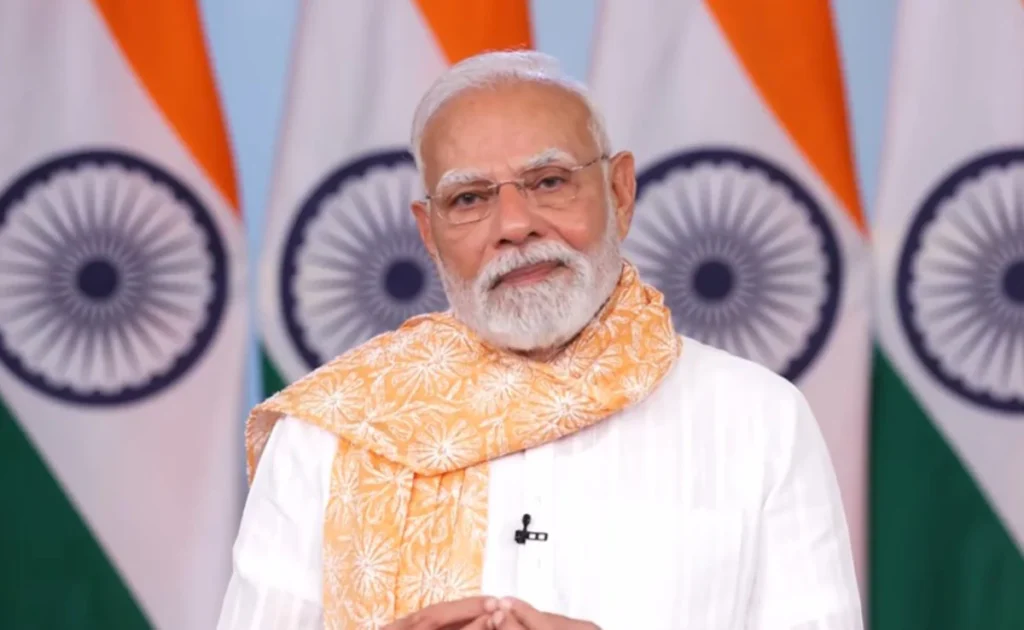PM Narendra Modi is expected to skip the upcoming UN General Assembly session, with External Affairs Minister S. Jaishankar likely to represent India. Learn the reasons, implications, and India’s priorities at the UN in this detailed article.

PM Modi to Skip UN General Assembly 2025; S. Jaishankar Likely to Represent India
Why PM Modi May Skip the UN General Assembly
Prime Minister Narendra Modi is expected to skip this year’s United Nations General Assembly (UNGA) session, marking a significant departure from past trends where Indian leaders actively participated in global diplomatic platforms. Instead, External Affairs Minister Dr. S. Jaishankar is likely to represent India at the session. This development comes amid growing domestic priorities and strategic recalibration of India’s global engagements.
PM Modi’s absence from the UNGA, which typically draws world leaders to New York for critical discussions on climate change, global security, trade, and sustainable development, reflects India’s evolving diplomatic approach. While some view this as a setback to India’s global profile, others interpret it as a move to delegate representation to specialized leadership while focusing on pressing domestic issues.
Key Reasons Behind PM Modi’s Absence
1. Domestic Commitments and Elections
India is gearing up for major electoral cycles in several states, and national policy reforms are underway. PM Modi’s focus remains on economic revival, infrastructure projects, and welfare initiatives at home, which require intensive attention. His absence signals prioritization of governance over symbolic presence.
2. Delegation to Expert Leadership
By sending Dr. S. Jaishankar, a seasoned diplomat and strategist, India aims to ensure that its foreign policy objectives are articulated with depth and expertise. Jaishankar’s role allows India to engage in technical discussions on energy security, terrorism, and multilateral trade without diverting the Prime Minister’s focus.
3. Strategic Messaging
India’s decision reflects confidence in its diplomatic corps. With Jaishankar representing the country, India is also highlighting its emphasis on professional diplomacy, issue-specific interventions, and sustained partnerships across regions.
What Dr. S. Jaishankar’s Role Means for India
1. Continuity Without Disruption
India’s participation in the UNGA will not be affected. Jaishankar’s involvement ensures continuity in foreign relations, particularly on topics where India plays a crucial role, such as counter-terrorism, energy transitions, and sustainable development goals.
2. Climate and Energy Security
One of the central themes of this year’s UNGA is climate action and energy transformation. Jaishankar is expected to advocate for equitable climate financing, access to clean energy, and a fair transition model for developing nations.
3. Counterterrorism and Security Cooperation
India has consistently raised concerns over cross-border terrorism. Jaishankar’s speeches are likely to reinforce India’s stance on international accountability, intelligence sharing, and building coalitions to tackle extremist networks.
4. Multilateral Trade and Development
India’s participation will include discussions on supply chains, technology transfer, and global economic reforms. Jaishankar will emphasize India’s role as a responsible global partner that supports fair trade practices while safeguarding developmental priorities.
Global Reaction and Implications
The international community is closely watching how India’s foreign policy is adapting to its internal and external challenges. Analysts suggest that Modi’s absence may temporarily reduce India’s symbolic presence but not its strategic influence. Major powers, including the U.S., EU, and ASEAN nations, are expected to maintain direct engagement with Jaishankar, underscoring India’s significance as a regional and global player.
Furthermore, India’s ability to articulate its concerns through diplomatic experts may prove more effective in nuanced negotiations than mass political appearances.
Looking Ahead: India’s Role at the UN
As global issues grow increasingly complex, countries like India must balance domestic imperatives with international responsibilities. Modi’s absence is seen not as a retreat but as a strategic recalibration aimed at leveraging expertise while empowering institutions.
Dr. S. Jaishankar’s presence at the UNGA will reaffirm India’s commitment to multilateralism, development, and global cooperation. His interventions are expected to advance India’s interests while reinforcing its leadership in shaping the future of energy, security, and sustainable growth.
India’s approach exemplifies how emerging powers are redefining diplomatic engagement — focusing less on optics and more on actionable policy outcomes.
PM Modi’s decision to skip the UN General Assembly is a deliberate and strategic choice, reflecting India’s growing maturity as a global actor. By entrusting Dr. S. Jaishankar with this critical role, India signals that it values depth, continuity, and expertise in global forums. As the world navigates crises ranging from climate change to terrorism, India’s presence, even if led by its foreign minister, remains impactful and indispensable.
READ ALSO….Citizens’ Relief First, Revenue Second: FM Sitharaman Emphasizes Tax Relief Focus 5 Sep















 Categories
Categories









